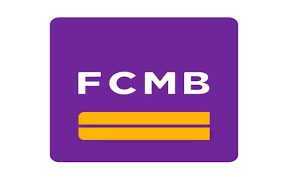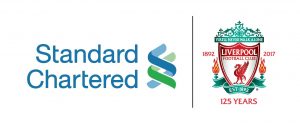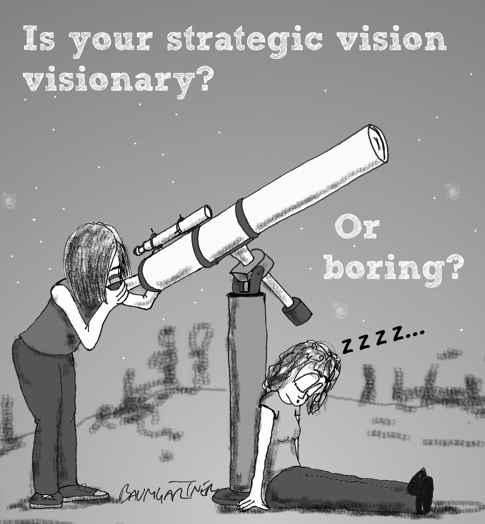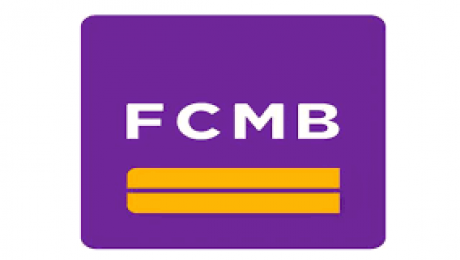FCMB Promotes Entrepreneurship Among the Youth, Urge Innovation

Leading financial services provider, First City Monument Bank (FCMB) has once again demonstrated its commitment towards the empowerment of youths in entrepreneurship by sponsoring a capacity building programme for almost 1,000 members of the National Youth Service Corps (NYSC) in Abuja on July 30th, 2018. Tagged ‘’Youth Entrepreneurship and Empowerment Programme’’, it was in partnership with Activate Success Foundation. The highly engaging, interactive and exciting session provided a platform for the youth corpers to look inward, develop and deploy their business skills through practical trainings facilitated by experts and successful business owners.
According to the Bank, the development will go a long way to empower them with the requisite resources to start and grow successful businesses during and after their service year in order to become financially independent and contribute significantly to national development. Commenting on the initiative, the Executive Director, Retail Banking of FCMB, Mr. Olu Akanmu, said it is in line with the commitment of the Bank to provide multiple opportunities that would inspire and enable youths to be actively engaged and eventually become successful business owners. According to him, ‘’FCMB Flexx account empowers Nigerian youths with the entrepreneurial and employability skills they need. Many youths set up their own businesses from their campuses. FCMB will be there with them to provide the necessary entrepreneurial and business skills they need to make great successes out of their businesses. FCMB will also provide great support for the youth businesses and work with them to nurture and grow the youth entrepreneurial ventures’’. Also speaking, the Founder of Activate Success Founder, Love Idoko, said, ‘’I have a penchant for motivating people. There are business-minded youths out there that are just looking for mentorship or business ideas as well as funds to start their businesses. The purpose is not just to give grants, it is to also empower and motivate as many youths as possible”.
Among the facilitators at the programme were a Member of the Lagos State House of Assembly, Hon. Desmond Elliot; Chief Executive Officer, Vodi Tailors, Mr. Seyi Adekunle and Executive Director, YIAGA Africa, Mr. Samson Itodo, of the #NotTooYoungToRun fame. At the end of the programme the sum of N2.7million was given as grant to some of the youth corpers with excellent business ideas to enable them start-up. FCMB has over the years developed various engagement programmes focused on empowering young Nigerians such as #FlexxYourCreativity, #FCMBFlexxtern and the Flexx Youth Entrepreneurship Masterclass. Through these initiatives, FCMB has given young entrepreneurs and students access to training, funding, mentorship, networking opportunities and jobs. The Bank’s Flexxzone (http://flexxzone.fcmb.com/) also provides useful resources to help young Nigerians build their business and career, while keeping up with latest trends in fashion, lifestyle and entertainment. The Bank’s youth product, Flexx, is one of its innovations to simplify and make banking services exciting. The Flexx proposition has continued to meet the overall financial and other socio-economic needs of young people from the age range of 16 to 30years. This is summarised in the description of Flexx as, “An app, a card, an account”. These features give account holders the freedom to bank on the go, using the Flexx Mobile App and also the Bank’s USSD code, *329#.
With a clear understanding of its market and environment, FCMB is well positioned to continue to create value by delivering exceptional services, while enhancing the growth and achievement of the personal and business aspirations of its customers.
More Customers Win Cash, other Prizes at FCMB’s Millionaire Promo Season 5 Draws

First City Monument Bank (FCMB) has rewarded another set of 644 lucky customers in its ongoing reward scheme, tagged ‘’FCMB Millionaire Promo Season 5”. The second set of winners emerged at the second draws of the promo held across Nigeria on Wednesday, July 25, 2018. This brings to a total 1,288 customers of the Bank who have so far won cash and other gifts since the promotions commenced in March this year. The FCMB Millionaire Promo Season 5, which runs till November this year, is an extension of the Bank’s previous promotions. It is designed to give extra value and reward to our customers, while encouraging financial inclusion and savings culture in the country. The promo is targeted at all segments of the society, especially existing and potential savings account customers of the Bank. This however, excludes salary and domiciliary account holders.
While four lucky customers won N1million each, a total of 640 other account holders smiled home with LED television sets, generating sets, decoders, tablets, smart phones and other consolation prizes, at the end of the electronic selection exercise. At the Lagos Regional draw held at Gbagada, a suburb in the State, Mercy Ailekhue was the lucky winner of N1million, while Hulera Zubairu won the same amount at the Abuja & North Regional draw which took place in Kano. The third N1million winner, Ukwuaba Aliu, came from the South-East/South-South Regional draw held in Port Harcourt, Rivers State, just as Williams Rotimi was also rewarded with N1million at the South-west Regional draw in Ijebu-Ode, Ogun state speaking on the promo draws, FCMB’s Executive Director, Retail Banking, Mr. Olu Akanmu, said, ‘’We are excited that more of our customers have continued to be rewarded and empowered through this exciting reward scheme. We are committed to impacting the lives of individuals and businesses by delivering valued-added products and quality service that translate to exceptional customer experience. Our existing and potential customers are encouraged to partake in the FCMB Millionaire Promo, because it is an avenue to turn dreams to reality’’.
On how to participate, Mr. Akanmu, explained that all an existing or a new customer of the Bank has to do is to increase his or her balance by N10,000.00 in any of the eligible savings account and maintain it for 30 days to qualify for the Zonal and Regional electronic selection of winners where the star prize of N1million and other fantastic prizes will be won. Multiple savings of N10,000.00 will increase the probability of winning. To qualify for the grand finale draws in November 2018, where four customers will each win N2million, existing and new customers are to increase their balances up to N50,000.00 and maintain them for 30 days. Multiple savings of N50,000.00 will also increase the chances of winning. The third draws of the promo will hold in September and the grand finale is in November.
First City Monument Bank (FCMB) Limited is a member of FCMB Group Plc, which is one of the leading financial services institutions in Nigeria with subsidiaries that are market leaders in their respective segments. Having successfully transformed to a retail and commercial banking-led group, FCMB expects to continue to distinguish itself by delivering exceptional services, while enhancing the growth and achievement of the personal and business aspirations of its customers.
Standard Chartered renew LFC partnership Partnership extended to run until end of 2022/23 season

Liverpool Football Club and Standard Chartered Bank are pleased to announce a four-year extension to their main sponsor agreement, taking the Bank’s partnership with the Club through to the end of the 2022/23 season. The Bank first signed up as the Club’s main sponsor in July 2010, and the agreement was extended in 2013 and again in 2015. Financial terms of the agreement remain confidential. Liverpool FC has a large number of fans across Standard Chartered’s core markets in Asia, Africa and the Middle East and the sponsorship provides the Bank with an opportunity to accelerate visibility of its brand, improving recognition across key markets around the world.
Additionally, over the last eight years Standard Chartered and Liverpool FC have used their partnership to support a number of the Bank’s sustainability and community investment programmes. The annual ‘Perfect Match’ game – where LFC players swap the Standard Chartered logo on their shirts for the Seeing is Believing logo – has raised more than USD480,000 to tackle avoidable blindness. Billy Hogan, Managing Director and Chief Commercial Officer, Liverpool Football Club said: “As a Club we’re very proud to have Standard Chartered renew their relationship for another four years. Our connection runs deep, it means more than just sponsorship, from the outset it has been about working together with the Club and our communities and supporters around the world. “Importantly, it also means we are able to support our ambitions on the pitch and compete with the best in the world. We have enjoyed many highlights of this relationship so far and I look forward to many more.”
Bill Winters, Group Chief Executive, Standard Chartered, said: “Liverpool FC is one of the world’s best-known football clubs and we are proud to be associated with them. It is a fantastic club that shares many of our values and is hugely popular across our global footprint. Our partnership has provided valuable support to the charitable initiatives close to our hearts and has helped us to further engage with our clients and staff as well as with LFC fans. We are excited to be able to continue this partnership, and look forward to building on our successful relationship.”
FCMB Certified as a ‘Great Place to Work’

Committed to Human Capital development, First City Monument Bank (FCMB) announced today that it has been certified as a great place to work by the independent analysts at Great Place to Work Institute, a global research firm, which produces the Fortune 100 Best Companies to Work For list and other top employer rankings. Great Place to Work surveys were sent to a random cross section of FCMB employees, and 84% agreed that the Bank is a great workplace, with majority saying they take pride in working for the organization. The certificate was presented to FCMB by GPTW Institute Africa at a ceremony on February 27, 2018 in Lagos.
Commenting on the certification, the Managing Director/Chief Executive of FCMB, Mr. Adam Nuru expressed delight at the recognition. According to him, “our employees are at the heart of FCMB’s mission. Creating an enabling environment where employees can pursue their career goals and thrive, while providing the best customer experience to our customers, and supporting the communities where we operate, have remained key priorities for us’’. Also speaking at the certificate presentation ceremony, the Senior Vice President and Divisional Head, Corporate Services, FCMB, Felicia Obozuwa, added that, “we want our employees to love working here, so we try to create the type of work environment that positively impacts our employees’ personal and professional lives. When looking for a company to work for, we have found that it is not all about salary anymore. People want to know that their work is valued, the opportunities for upward mobility, the training made available to learn new skills, they want to know that you have a strong supportive culture, their work will be challenging, and they will work with supervisors that motivate and inspire them. These are the areas we have focused our attention on over the years’’.
She further stated that, ‘’FCMB employees are the most dedicated, smart and hardworking. So, we support our people by creating an inclusive, respectful, high performance culture, bringing different perspective to bear, and making everyone feel valued’’. GPTW institute is a Global research firm that assess companies, based on a trust index survey (employees’ opinion about the workplace) and culture audit (management policies and practices), with the overall objective to promote excellence in the work place. The Institute operates in 50 countries, including Nigeria.
The certification of FCMB as a Great Place To Work follows an assessment exercise and an independent survey carried out by the Institute last year. The independent analysts looked in-depth at the Bank’s operation and found key strength in many areas. The survey showed that majority of FCMB’s employees took pride in their work and valued its supportive atmosphere, rewards and challenges associated with being part of the organisation. Among other parameters employees of FCMB rated the Bank highly in, include work-life balance, training and development, and celebration of good work. The employee survey responses revealed how well the Bank balances the needs of its diverse workforce, such as career management through a self-service career portal, mentoring programmes, talent development programmes, professional development opportunities, good medical support, employee health week providing nutrition advice, free health checks at branches etc, telephone counselling services for personal issues, and policies/benefits to reduce the financial burden on expectant and nursing mothers, newly married employees, bereaved employees, and children education grants for long serving employees.
On his part, Mr Michael Tosin Oni, a Director at GPTW Nigeria explained that the Certificate was instituted to promote human capital development. He stated that FCMB has distinguished itself by creating a great place to work for employees, measured through our analysis of the results of our Trust Index survey and Culture Audit questionnaire. Through the Trust Index, employees anonymously assess their workplace, including the honesty and quality of communication by managers, degree of support for employees personal and professional lives and the authenticity of relationships with colleagues. While expressing appreciation for the recognition, Felicia Obozuwa stressed that, ‘’getting this certification for 2017/2018 is a step in our journey to build a great workplace culture that attracts and retains talent. Our goal is to make FCMB a truly Great Place to Work for every single employee that puts in their best here’’.
The five-minute management idea: real innovation hacks
A weekly shot of new thinking for business leaders: innovation needs short business plans, employee incentives and social trends
Corporate leaders often talk about creating a ‘culture of innovation’ within their companies. Most of what is considered ‘innovation culture’ is ‘innovation theatre.’ Having rooms with business model canvases, sharpies and sticky notes is not innovation culture. Neither is opening an innovation lab or working with startup accelerators. Even after putting all these practices in place, executives are still frustrated by the lack of results. They have all the great innovation tools in their business, but no innovation.
Innovation culture is not some mythical phenomenon. It is created by what these leaders punish, recognize, celebrate, and reward. Innovation tools will not help a company if its leadership team is still hanging onto traditional management practices. While executives lament the lack of innovation in their companies, they are still unwilling to relinquish thirty-paged business plans and the calculation of bonuses based on annual sales targets. If corporate leaders want the innovation tools to have an impact on their company culture, they have to change the following three management practices:
THREE CHANGES NEEDED FOR WHOLE-COMPANY INNOVATION
Innovation Strategy
Companies want to innovate but the leadership team has no clear strategy around innovation. Instead, employees are given a broad and general remit to come up with great new ideas. What companies need is a clear innovation thesis that outlines the key trends impacting their business and how the company plans to use innovation to get ahead of those trends. This innovation thesis should provide a simple guide of the types of innovative ideas the company will invest in.
Investment Decision Making
Corporate leaders can stifle innovation by how they make decisions to invest in ideas. Investment decision making is the most powerful lever managers have in transforming a company’s culture. If employees are still required to write long business plans before they get any money, the company will end up rewarding the kinds of people who are happy to write such plans. Such practices tend to exclude the creatives and leave them out of the process. Since most innovative ideas fail, increasing the number of bets is a good method for discovering ideas that work.
Incentives and Rewards
Another powerful lever for changing culture is incentives and rewards. Most companies calculate bonuses and make promotion decisions based on how well people perform in relation to revenue growth on the core products. While managers pay lip service to innovation, they do not put any innovation goals in their employees’ annual plans. Until they change how they incentivise their managers, they will not get the results they wish for.
To move beyond the sticky note approach to innovation, leaders need to change how they set strategy, make investment decisions and reward their employees.
Guest blogger Tendayi Viki
- Published in Blog
Is Your Strategic Vision Visionary or Boring? By Jeffrey Baumgartner

Probably the most important sentence your company ever puts to paper is your strategic vision statement. It defines your organisation, your goals and the paths you take. A bold, visionary statement is the first step in establishing your firm as a bold, visionary leader. A mediocre statement keeps you on a path of mediocrity, trailing behind the visionary leaders. A lack of any vision leaves it to your customers and employees to assign a mediocre vision statement to your company. And they will.
Whether yours is a global organization or a one-woman business operating out of Poughkeepsie, your strategic vision statement should be but a few words, but those words are vitally important to where your company is going and how it is going to get there. Think about the leading company or two in any field and you probably have a good idea of their strategic visions. Think about Apple, Walmart, Facebook, Versace, Porsche, Victoria’s Secret.
In short, success for your business starts with a strategic vision statement and then flows through communication to your employees, customers, future customers, business partners, other stakeholders and your community.
Moving Goal
A vision statement is essentially a moving goal that you aspire to chase after. The moving bit is important. You do not ever want actually to achieve the goal defined in your vision. If your vision is to sell 100 coffee mugs by next Wednesday, you’ll be lost come Thursday. On the other hand if your vision is to create unique, designer coffee mugs in limited batches of 100 which will only be sold for one week, you’ve got something that will keep you busy indefinitely.
Avoid Being Best Like the Plague
Amazingly, in view of the critical importance of a strategic vision statement, a large number of companies either have no defined vision or a vague, meaningless one. The worst thing you can do in crafting a strategic vision statement is to use the word “best” − it is almost certainly an indication of mediocrity and lack of vision. To understand why, the next time you are with a group of friends, ask everyone who makes the best pizza (or any popular food) in your city. The chances are you will get several different answers and a few disagreements. That’s because best is a meaningless word unless precisely defined − and even then it is dubious.
Or, look at it this way, you are visiting a new city and see three pizzerias. One claims to be the best pizzeria. The other makes no claim and the third claims to be a family owned restaurant specialising in novel pizzas made with fresh locally sourced ingredients. Which is likely to get your business?
Be Different
No company ever became the market leader by being the same as everyone else in the field. Think about it. In order to have a field in which everyone is the same, there had to have been a visionary who defined normal behaviour in that field.
Your strategic vision statement should be unique. It should carve out your niche in the market place and allow you to own that niche. That can be scary. For most organisations, like people, it feels safer to follow the leader than to go off in your own direction. But you will know you have succeeded when you look back and find other companies following your lead.
- Published in Blog
Establish Expertise Inside Your Company
In a competitive marketplace, developing a reputation as an expert is one of the best forms of career insurance. Having a blue-chip personal brand is powerful for international thought leaders, who can leverage it to command exorbitant speaking fees. But it’s also helpful for professionals who work inside corporations, where a great reputation can bring coveted promotions and opportunities. Here’s how you can become recognized for your expertise inside your company.
First of all, it’s important to recognize that you don’t have to start out as a worldwide expert. Too many people discount their value. You can coach others on writing better business memos even if you’re not Shakespeare, or lead an office running group even if you’re not Usain Bolt.
Michael Leckie was a vice president of human resources for a prominent research company when he developed an interest in coaching. Although the subject was related to his job, it wasn’t part of his actual responsibilities—he simply began studying it because he wanted to. He started out as a novice, compared to worldwide authorities, but he quickly grew to be one of the most knowledgeable people about talent development within his company. “When you start building your brand in a corporation, it’s a confined space,” he told me in an interview for my new book, Stand Out. “You don’t need to be the best in the world; you just need to be the best one there. You can be a big fish in a little pond, and if you’re the biggest fish in that environment, you get bigger and can then start to do things outside the organization.”
In these early stages, it’s important to be clear about what you know and what you don’t. If you try to prematurely position yourself as an expert who can compete with industry giants, you risk losing credibility when you’re faced with a question or challenge you’re unsure about. But if you’re honest about where you are in the process – experienced with some facets and still learning others – then others are likely to respect you for your superior knowledge and not hold it against you if you don’t know everything.
As your profile grows, it’s also important to ensure that your company understands the value of your public brand. This is especially important if, like Leckie, you’re cultivating expertise on a subject that isn’t part of your core responsibilities. “My world is [the firm], so I need to have my brand aligned to what matters to them,” says Leckie. Developing his coaching brand began to raise Leckie’s professional profile in general, which eventually to led to an invitation to give a keynote talk for a client’s conference of technology leaders. The keynote was an exciting opportunity for him, but his superiors could have viewed it with suspicion (Why is he getting all this attention? Why isn’t he concentrating on his real job?) if he hadn’t taken the time to show them how it was relevant to the company’s business objectives.
“With outside things, you have to make sure you’re explaining them [in terms of] what matters in the organization,” said Leckie. “Otherwise, they start to look, to some, like a distraction.” He didn’t assume his boss’s boss would understand why it was important for him to speak at the conference – rather, Leckie explicitly articulated the keynote’s business benefits to him. “What he’ll be excited about is great interactions with the client,” Leckie said, “and that I’m out there developing business and increasing the relationship they have with us.”
Finally, it’s important to recognize when it’s time to expand what you’re known for strategically. “Sometimes your brand is more happenstance than thoughtful,” says Leckie. “It may be about things you like, but it’s not necessarily leading you where you want to be moving toward.” Leckie realized he’d been so successful at building his expert reputation around coaching and talent development that those skills — even though they were valuable for an HR leader — were beginning to overshadow others that were deemed more critical inside his company. “My brand got established and it opened the door, but it also began to shut other doors. It became clear to me that while I was really good at building and driving a team that got great business results, when people were talking about me, it wasn’t about business results; it was about the more unique elements of my brand [such as coaching].”
That’s why he decided to make coaching a “sub-brand.” In other words, he didn’t abandon it, but he started emphasizing it less in favor of talking about his ability to drive the bottom line. “It’s giving people a language of how to think about you subtly,” he says, by shifting the topics you discuss and by enlisting friendly ambassadors to highlight your relevant accomplishments. That’s been especially important to him as he’s risen in the ranks of his company and now holds a broader leadership role.
It’s slightly trickier for professionals to build a strong personal brand inside a company, as compared to entrepreneurs or other free agents. You have to balance the unique mix of your skills and interests with your company’s needs and sensibilities. But when done right, cultivating a brand as a “local expert” inside your company can enhance your professional reputation and ensure you’re valued the way you should be.
- Published in Blog, Uncategorized


